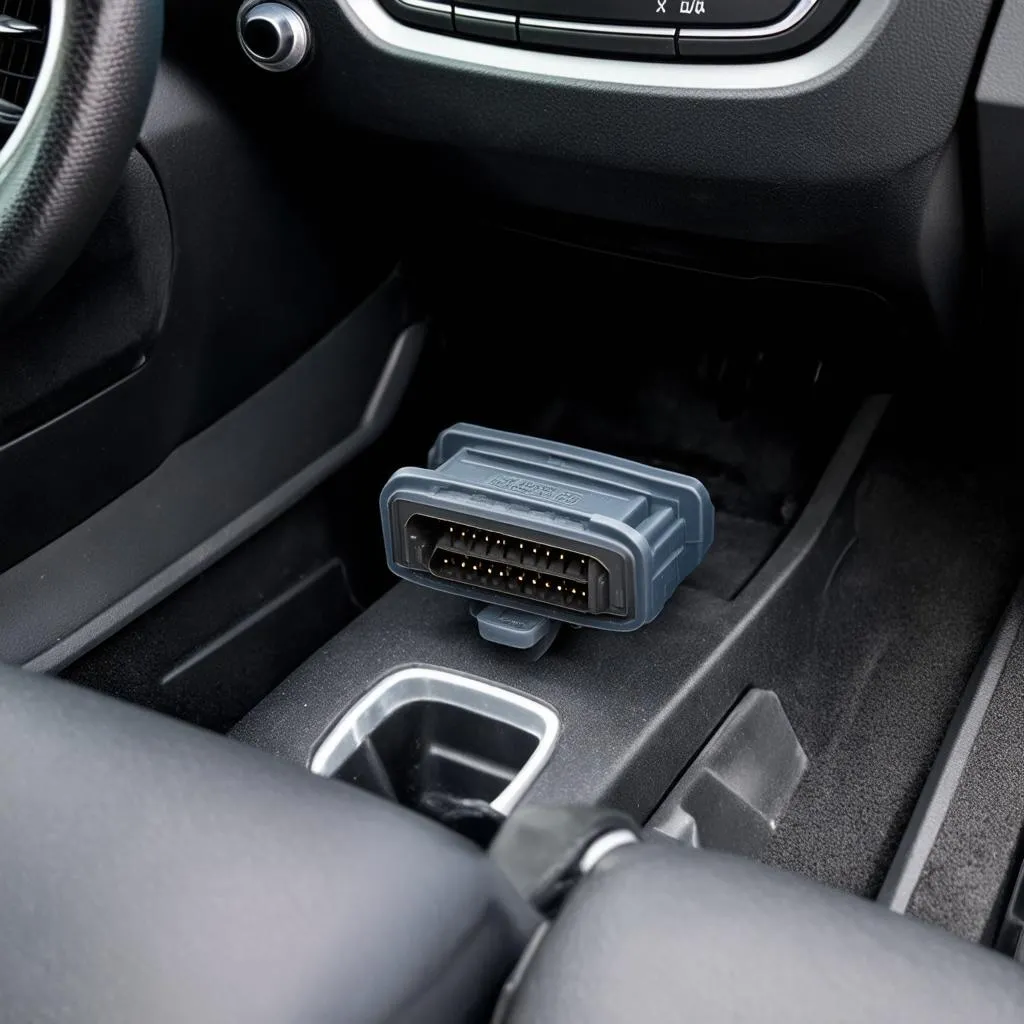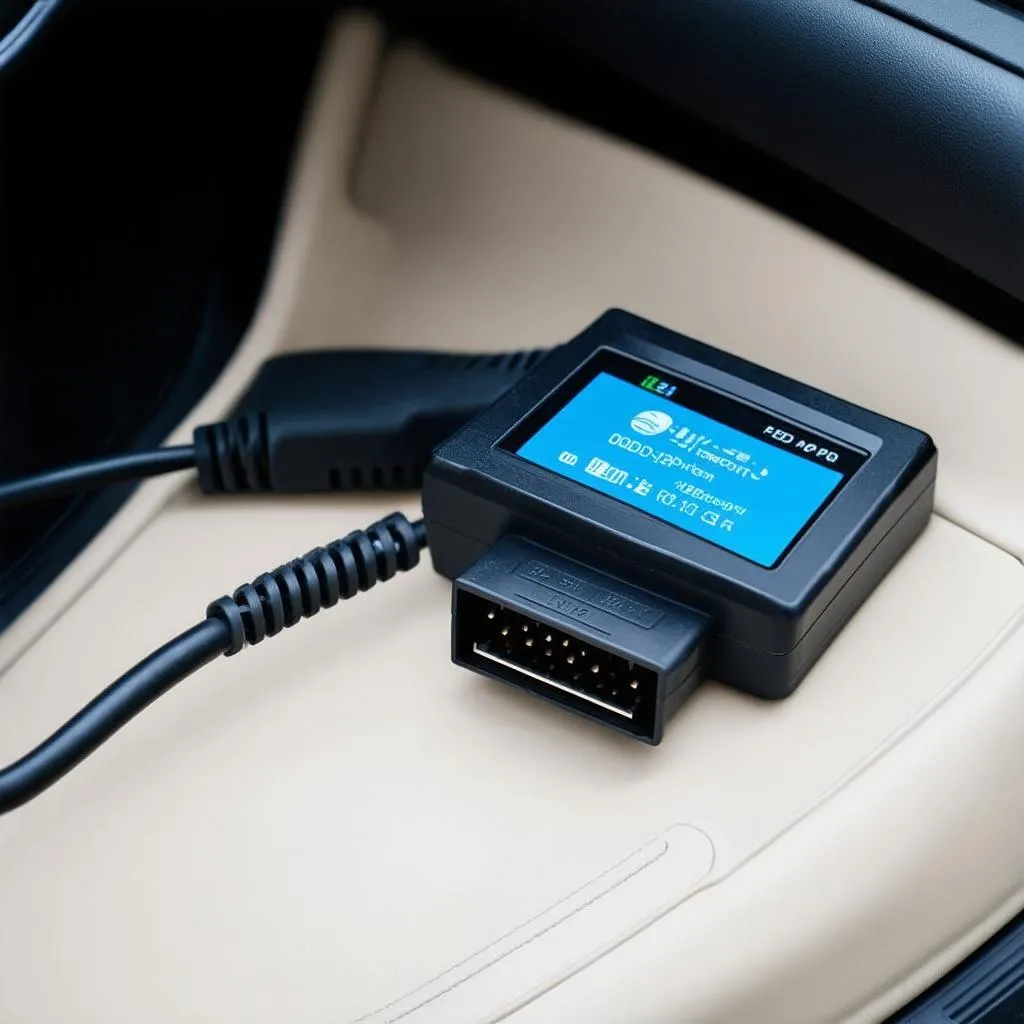You’re working on a car project, and you need to connect a diagnostic tool to your vehicle, but you’re wondering how many OBD ports your car has. Maybe you’ve heard rumors about some cars having multiple ports, and you’re not sure if it’s true. Don’t worry, you’re not alone! Many people have questions about OBD ports.
Why Does This Question Matter?
The answer to this question is more than just a technical detail. Understanding how many OBD ports your car has is important for several reasons:
1. Diagnosing Problems: OBD ports are the gateway to your car’s computer system. They allow mechanics and DIYers alike to read diagnostic trouble codes (DTCs), which help pinpoint the source of any issues. If you have a malfunctioning car, the information you get from an OBD port can be crucial.
2. Monitoring Performance: OBD ports also allow you to monitor your car’s performance in real-time. You can track parameters like engine speed, fuel consumption, and even check the battery health.
3. Tuning & Modifications: If you’re into car modifications or tuning, you’ll need an OBD port to access the car’s computer system to reprogram the engine’s control unit (ECU) for improved performance or emissions optimization.
4. Cost Savings: Being able to diagnose and potentially fix problems yourself can save you money on expensive mechanic bills.
The Answer: Most Cars Have One OBD Port
So, How Many Obd Ports Does A Car Have? The answer is usually one.
Why One Port?
The OBD port was standardized in the 1990s to simplify diagnostics and make it easier for mechanics to connect diagnostic tools across different vehicle brands. Having a single, standardized port ensures compatibility and makes the process of diagnosing and repairing vehicles more efficient.
Exceptions to the Rule:
Older Cars: Cars manufactured before 1996 may not have an OBD port at all, or they might have a different, older type of port.
Dual Ports: Some high-end cars, especially European models, might have two OBD ports, but it’s not as common. These cars often have a standard OBD port for basic diagnostics, and a second port that’s used for more advanced features, like reprogramming the ECU or customizing vehicle settings.
Specialized Ports: Some cars have additional ports for specific applications, such as connecting to a racing data logger or a vehicle telematics system.
Where is the OBD Port Located?
The OBD port is typically located under the driver’s dashboard, near the steering column. However, some manufacturers may place it in different locations.
OBD Port and Feng Shui
From a Feng Shui perspective, the OBD port represents the vehicle’s energy flow. A properly functioning OBD port allows for clear communication between the car’s various systems, ensuring a smooth and efficient energy flow. It’s believed that a blocked or malfunctioning OBD port can lead to disruptions in the car’s energy, potentially causing problems with its performance and longevity.
What to Do if You Can’t Find Your OBD Port
If you’re having trouble locating your OBD port, you can check your owner’s manual, consult your car’s repair manual, or search online for a specific model of your vehicle.
Frequently Asked Questions About OBD Ports:
Q: Can I add an OBD port to my car?
A: It is possible to add an OBD port to a car that doesn’t have one, but it’s a complex process that requires a good understanding of car wiring and electronics. It’s best to consult with a qualified mechanic or a professional electrician.
Q: What is the difference between OBD I and OBD II?
A: OBD I and OBD II are different standards for onboard diagnostics. OBD II is the current standard and is more advanced, providing more information and diagnostic capabilities.
Q: What are the benefits of using an OBD scanner?
A: OBD scanners allow you to diagnose and monitor your car’s performance, providing insights into potential issues and helping you save money on repairs.
Q: How do I choose the right OBD scanner for my car?
A: There are various types of OBD scanners available, ranging from basic code readers to advanced diagnostic tools. The best OBD scanner for you will depend on your needs and budget.
Other Related Topics:
- OBD Failed to Connect
- OBD Foxwell
- 2010 Camaro OBD Readiness
- Ford OBD Computer Not Putting Out Codes
 OBD Port Location
OBD Port Location
 OBD Scanner Connected
OBD Scanner Connected
Want to Learn More About Diagnostics Tools?
Don’t hesitate to contact us at Whatsapp: +84767531508 if you need help with setting up your diagnostics tools. We have a team of automotive experts available 24/7 to help you.
We hope this article has helped answer your question about OBD ports. Feel free to leave a comment below and let us know if you have any other questions.